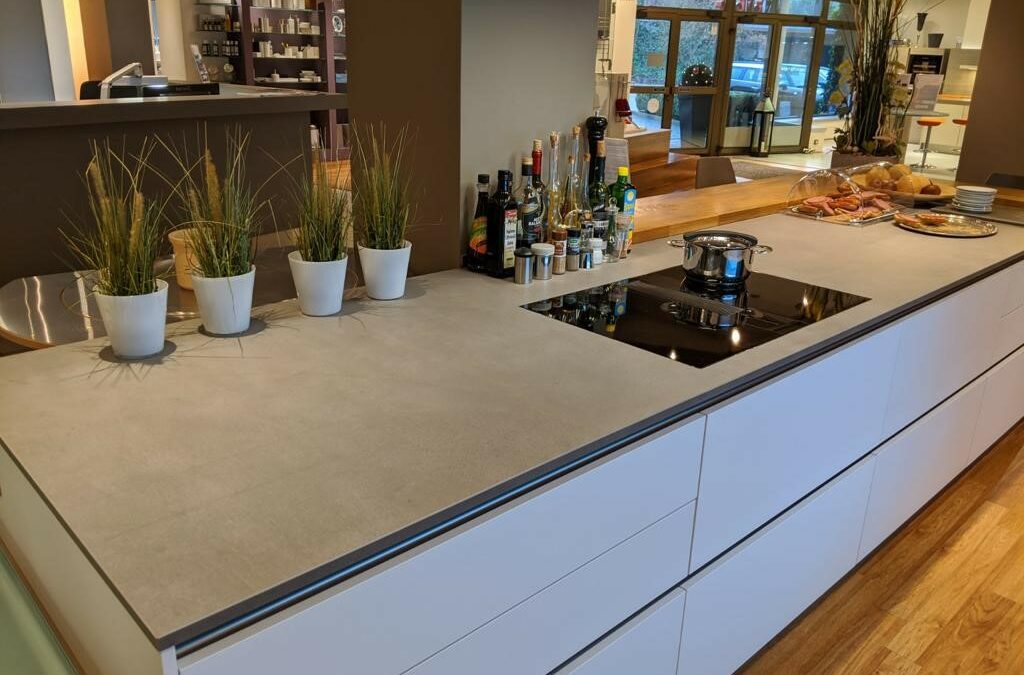Porcelain is a type of ceramic tile that is much stronger, harder, durable and better than regular ceramics. The porcelain tile achieves these characteristics by using clays with finer particles fired at a higher temperature which results in a less porous and harder surface than ordinary ceramic tiles. In this article, we will discuss some pros and cons of porcelain tiles to help you make a better choice for your flooring and other applications of tiles. Let us dive into the pros and cons of porcelain tiles.
Pros
High durability
Due to its dense and hard construction, porcelain tiles are capable of resisting wear, scratching, cracking and chipping. The toughness of porcelain tiles makes it best for high traffic areas hence it can also be used for hotels, stores, restaurants and other commercial buildings. If you want a permanent solution for your floor then you should prefer porcelain tiles.
Easy to maintain
There are tiles, carpeting and hardwood that are difficult to maintain and requires proper maintenance to keep their applicability and splendour. When it comes to porcelain tiles, you do not need any maintenance other than ordinary cleaning. Porcelain tiles can be easily mopped with domestic chemical solutions.
Perfect for high traffic area
Porcelain tiles are rugged and sturdier than other tiles and this characteristic makes it the best option for commercial or public places with heavy traffic. Other tiles either break or lose their aesthetics after some but porcelain tiles remain intact and beautiful even with heavy footfalls.
Hygiene
Due to their low porousness, the porcelain tiles are easy to disinfect and clean. Thus, it is easy to keep them hygienic and there is no need to scrub them. You can also go for porcelain tiles if you have children and pets in your household.
Fireproof
Porcelain tiles are fire resistant but it does not mean they are immune to fire, Though, porcelain tiles do not feet the fire and they can also withstand smaller fires that seldom occurs in the kitchen.
Cons
Weight
Being dense and hard, the porcelain tiles are heavier than other tiles. Though, the weight only affects during transportation and installation process. After installing the tiles, the weight is not a significant issue anymore.
Installation and repair
It is difficult to cut and fit the porcelain tiles properly hence only professionals should install them. If you ever need to repair your porcelain tiles, you need to call an expert for the work instead of other inexperienced individuals.
Grout stains
Porcelain resists stains and liquid penetration but the grout between the porcelain tiles is too much porous. When the grout is not sealed properly, it can sustain damage over time. Thus, you need to take care of grout properly and prevent moulds caused by moisture.
Is Porcelain Tile Expensive?
The cost of porcelain tiles itself is not very high but when the installation cost gets added up, it can get expensive. The size and shape of the porcelain tile influence the pricing significantly along with floor installation. The cost of these tiles varies depending upon the manufacturer, the location and the price of the material used to make the porcelain tiles. The porcelain tiles are not very expensive and there are much more expensive flooring materials available in the market.
Porcelain Tiles vs Ceramic
The major difference between porcelain and ceramic tiles is the rate of water they absorb. Porcelain tiles absorb less than 0.5% whereas ceramic tiles absorb more water. Ceramic tiles are available in more intricate designs while porcelain tiles come with simple designs. Ceramic tiles are good for house interiors, commercial interior walls and low footfall areas whereas porcelain tiles are best for high traffic areas, exteriors, floors and high moisture areas etc. Ceramic tiles are comparatively cheaper than porcelain tiles. Now it is up to you and the application for which you want to choose a particular kind of tile.
Porcelain Tile Quality Differences
Porcelain tiles come with different grades depending on their thickness and tell us about the strength of the porcelain tile. According to the PEI rating scale, the porcelain tile grades does not tell the quality difference but only categorizes the tiles by their ideal usage. With PEI of grade 1, the porcelain tile can be installed as a decorative wall tile and it will last long. After that, there are grade 2, 3, 4 and 5 that gets denser. The grade 5 tiles are the toughest and they are used as floor tiles especially with high foot traffic.
Conclusion
Porcelain tiles are becoming popular among homeowners and builders for their benefits and beauty. These tiles are highly advantageous though it also has some minor disadvantages. We hope that we covered all major pros and cons of porcelain tiles and now you can make a better choice when it comes to selecting porcelain tiles for your house or commercial building.
